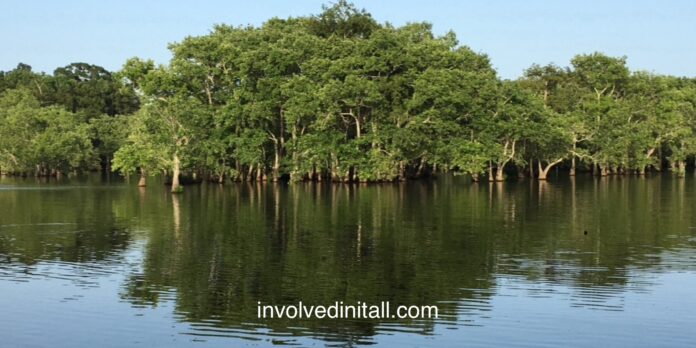ALEXANDRIA, LA (6/8/2025) – Carbon capture and sequestration (CCS) is a process aimed at reducing greenhouse gas emissions by capturing carbon dioxide (CO₂) from industrial facilities and storing it deep underground. As climate concerns grow, CCS is being considered a crucial tool, especially in hard-to-decarbonize sectors like cement and fuel production.
How Carbon Capture and Sequestration Works
CCS involves three steps:
- Capture: CO₂ is separated from emissions using chemical processes at power plants or industrial facilities.
- Transport: The gas is compressed and transported, usually via pipelines, to designated storage sites.
- Sequestration: It is injected into deep geological formations, such as depleted oil fields or saline aquifers, for long-term storage.
What’s Proposed for Pineville, Louisiana
SunGas Renewables, a Houston-based clean energy firm, is planning a $1.8 to $2 billion facility in Pineville named the Beaver Lake Renewable Energy (BLRE) project. The plant will convert woody biomass into syngas, which will then be used to produce green methanol, a clean-burning liquid fuel.
To minimize its climate impact, SunGas will:
- Capture the CO₂ produced during gasification and methanol synthesis
- Partner with Denbury Carbon Solutions, which will transport the captured CO₂ via pipeline and inject it into deep underground storage formations
The process is expected to achieve net-negative emissions because the CO₂ released during production will be sequestered underground, effectively removing more carbon than it emits. The facility is projected to produce up to 500,000 metric tons of green methanol annually and create 1,000 construction jobs and 100 permanent jobs.
The Case for Carbon Capture
Supporters say CCS offers multiple benefits:
- Industrial decarbonization for sectors where electrification isn’t possible
- Carbon removal when paired with renewable biomass
- Continued energy operations while transitioning to full renewables
- Job creation and regional economic growth
- Climate alignment, with agencies like the IPCC and IEA calling CCS essential to hitting emission reduction targets
Concerns Raised by Critics and Communities
Despite its promise, CCS faces criticism:
- Storage safety and the long-term risk of leaks
- Environmental justice concerns from communities near storage or pipeline zones
- Cost and reliability, as many CCS projects have failed or underperformed
- Enabling fossil fuel dependency, which could slow down investments in renewables
Legal and Regulatory Questions
The Pineville project raises several legal considerations:
- Pore space ownership and access
- EPA’s Class VI permit requirements under the Safe Drinking Water Act
- Long-term liability in case of leakage or contamination
- Public engagement and due process for nearby residents
Conclusion
Carbon capture and sequestration is a promising but complex tool in the climate response arsenal. The proposed Pineville facility by SunGas Renewables reflects both the potential and the uncertainty of CCS. Supporters tout it as a path to sustainable fuel production and economic growth. Critics argue it shifts environmental burdens onto vulnerable communities and diverts resources from cleaner energy alternatives.
As the project moves forward, how well the public is informed, how fairly risk is managed, and how equitably benefits are shared will determine whether Pineville becomes a model for responsible innovation or a battleground in the climate justice fight.
Sources
- U.S. Department of Energy, Office of Fossil Energy & Carbon Management – energy.gov/fecm
- SunGas Renewables Press Release – sungasrenewables.com/news
- Denbury Carbon Solutions – denbury.com
- Louisiana Economic Development Office – opportunitylouisiana.com
- International Energy Agency, “Carbon Capture, Utilisation and Storage” – iea.org
- Intergovernmental Panel on Climate Change (IPCC), Sixth Assessment Report – ipcc.ch
- Environmental Defense Fund, “What You Need to Know About Carbon Capture” – edf.org
- Center for International Environmental Law, “Confronting the Myth of Carbon-Free Fossil Fuels” – ciel.org
- Global CCS Institute, Global Status Report 2022 – globalccsinstitute.com
- Sierra Club, “Carbon Capture Is Not a Climate Solution” – sierraclub.org
- Louisiana Revised Statute 31:6 – legis.la.gov
- Harvard Environmental Law Review, CCS Liability Analysis – harvardelr.com
- Wikipedia








